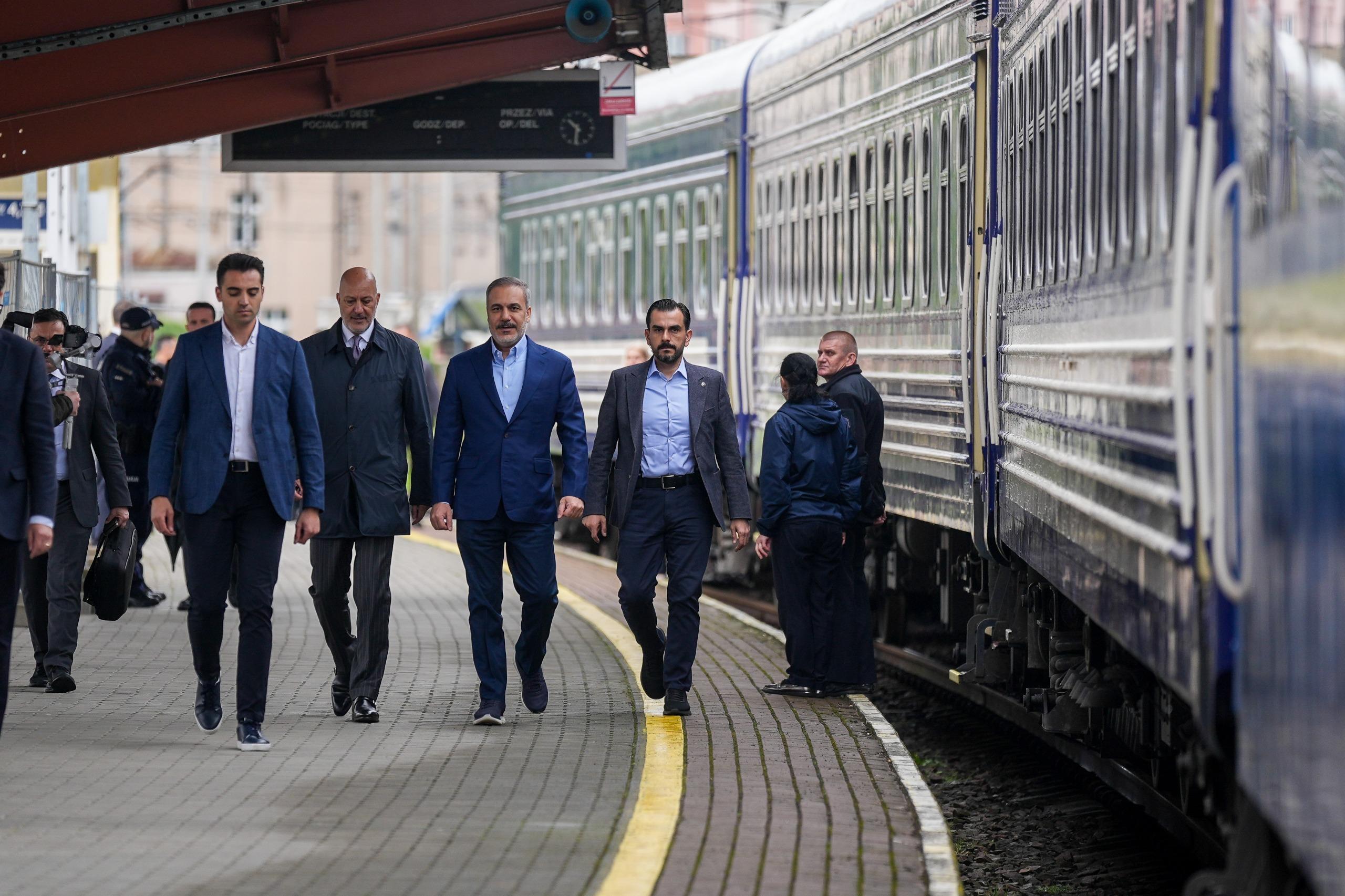
Foreign Minister Hakan Fidan has said a long-term ceasefire is the most realistic option between Russia and Ukraine, following key talks in Moscow ahead of his visit to Kiev.
"Making a permanent agreement requires a comprehensive effort. We have some formulas. We are sharing them with the parties," Fidan told daily Milliyet in an interview published on May 29.
Fidan’s remarks came as he prepared for a visit to Ukraine on May 29-30 after his meetings in Russia, highlighting Türkiye’s mediator role in efforts to end the war.
"When we compare the parties’ positions, a long-term ceasefire seems more realistic among possible solutions if it can be managed well," he said. "We will continue this shuttle diplomacy. We are making sincere efforts to ensure peace."
Fidan described his ability to visit both Moscow and Kiev, and hold talks with leaders from both sides as "a very important indicator of the respect shown to our country and our President [Recep Tayyip Erdoğan]."
"We are trying to use this opportunity to bring peace to our region," he added.
According to Fidan, Russia is currently preparing terms for a potential ceasefire, and further developments are expected. "The next meeting date in the negotiations will be determined depending on the need," he said.
Fidan’s visit to Moscow and Kiev comes after Russian and Ukrainian negotiators held direct talks in Istanbul on May 16, a development that raised hopes for progress toward ending the war.
He said his meeting with Russian President Vladimir Putin in Moscow took place in a "warm atmosphere."
"After the Istanbul negotiations, we had some views as Türkiye. I conveyed them [to Putin]. I got his reaction so that when I go to Kiev, it can be a productive visit tour," Fidan said.
"In such meetings, it is important to understand the mind of your interlocutor. It is important to understand the minds of the parties and see how you will establish this equation."
During his visit to Ukraine, Fidan was set to meet Ukraine President Volodymyr Zelensky, Foreign Minister Andrii Shiba, Defense Minister Rustem Umerov and presidential office head Andrii Yermak.
In Kiev, Fidan was expected to underline Türkiye’s readiness to host the next rounds of direct talks between the two parties, diplomatic sources told local media.
He was to hear Ukraine’s views on returning to the table in a more structured and goal-oriented manner.
Türkiye’s commitment to Ukraine’s sovereignty, territorial integrity and unity will also be voiced by Fidan during his talks, the sources said. He was also expected to repeat Türkiye’s readiness to contribute to the reconstruction of Ukraine in the post-war era.
Ukraine has emphasized the need for talks at the leaders’ level, but Russia wants technical preparations before a Zelensky-Putin meeting. Kiev also wants the cessation of the armed conflict for resuming talks but Moscow rejects this idea.
Zelensky paid a visit to Ankara on May 15 to meet Erdoğan, a day before the Istanbul talks. The Ukraine president had expressed his gratitude for Türkiye’s hosting of the meeting.
Fidan held a phone call with the European Union’s top diplomat, Kaja Kallas, on May 29 to discuss developments in Ukraine. He briefed Kallas on his Moscow meetings and shared his plans for the Ukraine leg of his tour.
In the meantime, Erdoğan has called on Russia and Ukraine not to "shut the door" on dialogue ahead of an anticipated meeting between officials from both sides in Istanbul.
"We are in contact with Russia and Ukraine ... We are telling them not to shut the door as long as it remains open," the Turkish presidency quoted him as saying on May 29.
A day earlier, Russia said it wanted new talks with Ukraine in Istanbul on June 2 to present its plan for a peace settlement, but Kiev said it needed to see the proposal in advance for the meeting to yield results.
"During the course of each of our meetings, we have reminded our interlocuters that they should not pass up this opportunity," Erdoğan said, adding that "extinguishing this huge fire in our region ... is a humanitarian duty."